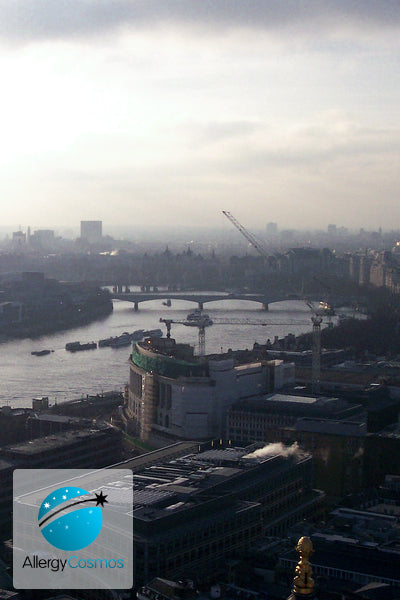The European Commission (EC) has, it seems, finally lost patience with the UK’s failure to comply with an EU air pollution directive that came into force in 2008. It is concerned, particularly, over levels of nitrogen dioxide, a known pollution threat to health, in many areas of Britain. Nitrogen dioxide is emitted from vehicle exhausts and affects the lungs. It is of particular concern to people who have asthma.
In 2010, levels of nitrogen dioxide exceeded limits set by the directive in as many as 40 of 43 areas in the UK. At this time, EU member states were supposed to comply with the directive but were allowed five years extra time to do so if they could show they had plans in place to reduce pollution levels. The UK had to admit this could not be done in 16 zones, including London. It will take until 2020 for the lower limit to be reached for Greater Manchester, the West Midlands, Merseyside and Glasgow. However, London will not realistically be able to achieve this until 2025.
The EC does not want to wait this long and will make an example of the UK – the first member state to have a case launched against it like this – for breaching its nitrogen dioxide limits. Is this fair? Other EU member states, including France, Sweden, Denmark and Greece, have also exceeded the levels of nitrogen dioxide set by the directive.
The reason why the UK seems to have been singled out in this way may go back to a ruling by the Supreme Court last year. The campaigning group Client Earth brought a case against the government and the judges agreed that it was indeed in breach of its obligation to reduce air pollution. In the light of this, it is perhaps not so surprising that the EC took the opportunity to act.
It shows what environmental campaigning can do, but it is a pity it has to come to this for the UK could face big fines when the case comes to the European Court of Justice. That is money that could have been spent on environmental controls such as putting into place low emission zones and cutting fares on public transport. As things stand, the UK has got two months in which to respond to the EC charge. It may point out that air quality has improved recently and that there are some measures in place that will lead to further improvements. In London, for instance, the world’s first ever ultra-low emission zone will be introduced into the centre of the city by 2020. There will be even tougher emission requirements on taxis from 2018 and a £20m fund to tackle local problem areas. Whether this will convince the EC remains to be seen – but if the debate can focus attention on UK air pollution problems in both London and other urban areas that can only be a good thing.




